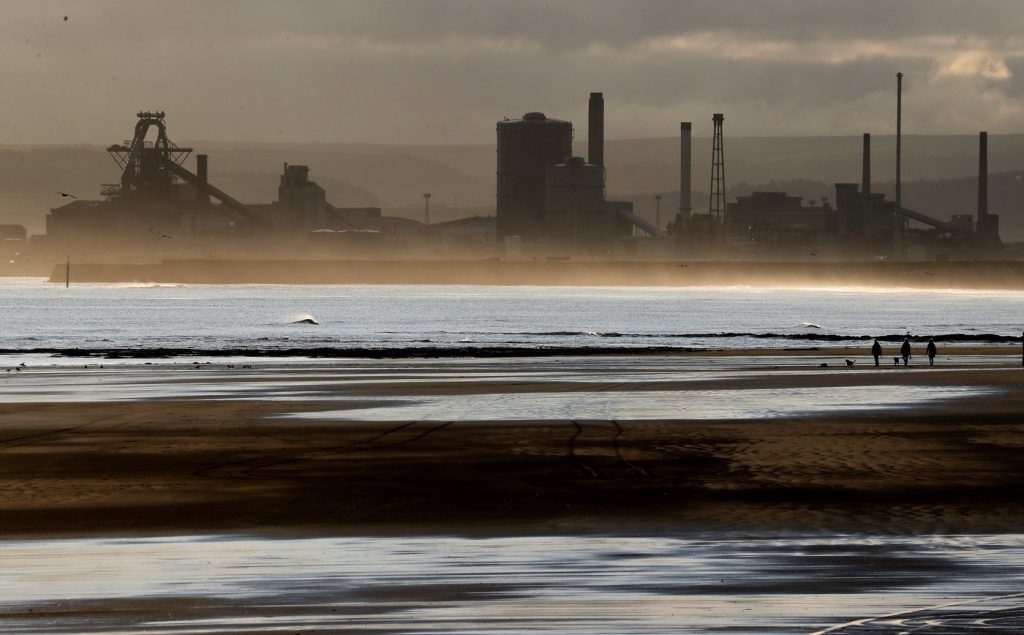LONDON (AP) – U.K. lawmakers convened in Parliament on Saturday after their Easter break to vote on an emergency measure intended to rescue the nation’s last remaining steel factory that produces steel directly from raw materials. Prime Minister Keir Starmer called for this unusual Saturday session to facilitate the debate on legislation aimed at preventing the closure of the blast furnaces at British Steel’s Scunthorpe plant in Northern England.
The proposed bill is expected to pass, which would grant Business Secretary Jonathan Reynolds the authority to oversee the company's operations, ensuring that workers are compensated and that the necessary raw materials are sourced to keep the Scunthorpe plant’s two large blast furnaces operational. Starmer indicated the future of the plant is precarious, underscoring the urgency for such rapid legislative action and the recall of Parliament.
Despite refraining from explicitly stating the term "nationalization," Starmer mentioned that all options remain open for the steelworks, which provides direct employment to approximately 2,700 workers. The necessity for this emergency legislation was heightened by recent actions from Jingye Group, the Chinese owners of British Steel, who canceled orders for critical iron pellets required for the blast furnaces. The absence of these pellets and other raw materials could force the plant's closure within days.
The extent of Jingye's involvement in the operational management of the steelworks post-legislation remains uncertain. Since acquiring British Steel in 2020, Jingye has claimed that the Scunthorpe plant is financially unviable due to "challenging market conditions" and rising environmental costs. Although Jingye has sought a government intervention for months, discussions have yet to yield a successful resolution. The recent imposition of a 25% tariff on imported steel by U.S. President Donald Trump has further exacerbated the situation for the struggling plant.
Starmer has conveyed disappointment regarding the tariffs but has chosen not to retaliate, instead opting to negotiate a resolution. Unions have responded positively to his initiative to recall Parliament, expressing hope that it could eventually lead to government ownership of the Scunthorpe plant. Roy Rickhuss, general secretary of the union Community, asserted that it is in the national interest to secure the future of British Steel, which he deemed a vital strategic business. He emphasized the importance of maintaining primary steelmaking capacity within the U.K., warning against the risk of Britain becoming the only G7 nation lacking such capabilities.
Historically, British steelmaking was a dominant force, thriving at its peak during the postwar period with an employment figure surpassing 300,000. However, the industry has faced significant challenges due to competition from cheaper steel imports from China and elsewhere, leading to a dramatic decline in workforce numbers, which now stands at around 40,000 people. Currently, steelmaking contributes only 0.1% to the British economy.
Additionally, the remaining steel manufacturers within the U.K. face mounting pressure to reduce carbon emissions, prompting most to transition to electric arc furnaces that recycle materials for steel production. This shift has rendered the Scunthorpe plant the only facility capable of processing iron ore into primary steel via blast furnaces.
Starmer highlighted the steel industry as an integral part of the nation’s history. Notably, this Saturday session marks the first time lawmakers have been summoned back from their recess since 1982, following Argentina’s invasion of the Falkland Islands.










